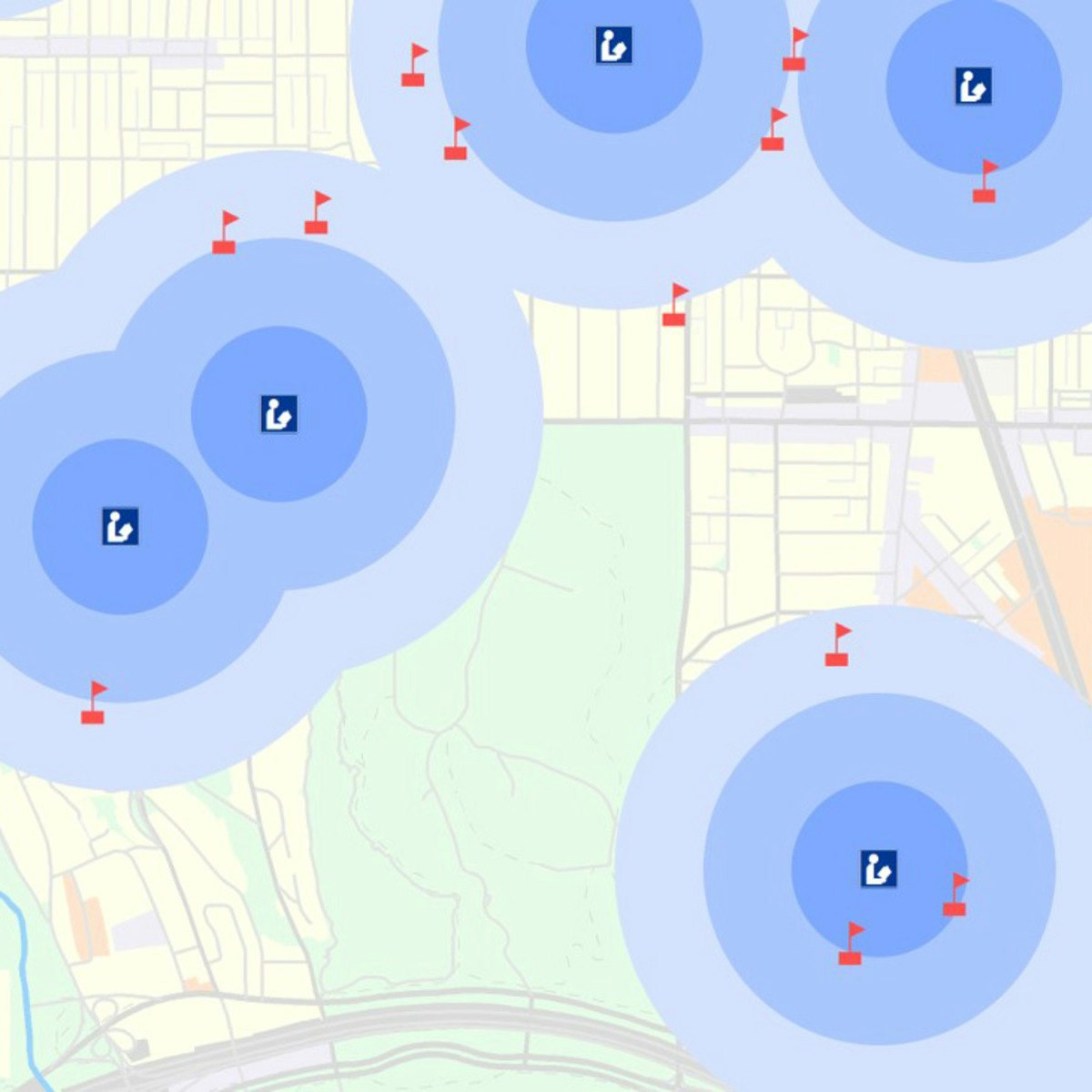GIS Technician
GIS Technician: Mapping Your Career Path in Geospatial Technology
Geographic Information Systems (GIS) technicians are the skilled professionals who work with spatial data to create maps, analyze geographic patterns, and help organizations make better decisions based on location. They use specialized software to manage, interpret, and display information about the world around us, transforming raw data into meaningful visual representations and insights.
Working as a GIS technician can be exciting for those who enjoy technology, problem-solving, and geography. You might find yourself mapping utility networks one day, analyzing environmental changes the next, or supporting urban planning projects. It's a field where technical aptitude meets real-world application, offering a tangible connection between digital work and physical space.
Overview of the GIS Technician Role
What is a GIS Technician?
At its core, GIS involves capturing, storing, analyzing, managing, and presenting data linked to location. A GIS Technician is primarily responsible for the hands-on technical tasks within this process. They handle the input, maintenance, and organization of geographic data, ensuring its accuracy and usability.
Their work often involves digitizing maps, converting data between different formats, updating existing geographic datasets, and producing maps for reports or presentations. They are the data caretakers and map makers who form the foundation of many GIS projects, ensuring the underlying information is reliable for analysis.
Think of them as spatial data specialists. While a GIS Analyst might focus more on complex spatial modeling or interpretation, the Technician ensures the data pipeline is clean and efficient, and that standard mapping requests are fulfilled accurately and promptly.
Where Do GIS Technicians Work?
GIS Technicians are employed across a wide array of sectors. Government agencies at the local, state, and federal levels rely heavily on GIS for urban planning, property assessment, emergency services (like 911 routing), and natural resource management.
Private industry also offers numerous opportunities. Utility companies (water, gas, electric) use GIS Technicians to map infrastructure. Engineering and environmental consulting firms employ them for site analysis and impact assessment. Real estate, logistics, and telecommunications companies also leverage GIS for market analysis, route planning, and network management.
Essentially, any organization that deals with location-based information can benefit from the skills of a GIS Technician. This breadth provides diverse career possibilities, allowing specialization in areas like Environmental Sciences or Urban Planning.
Related Geospatial Roles
The term "GIS Technician" is often used alongside other titles like GIS Analyst, GIS Specialist, or Cartographer. While duties can overlap, there are general distinctions. Technicians typically focus more on data creation, maintenance, and routine map production.
A GIS Analyst usually performs more complex spatial analysis, modeling, and interpretation, often requiring a deeper understanding of statistical methods and specific domain knowledge. A GIS Specialist might have broader responsibilities, including system administration or application development, while a Cartographer focuses specifically on the art and science of map design and production.
Understanding these nuances can help you target your learning and career goals within the broader geospatial field. Many professionals start as Technicians and advance into Analyst or Specialist roles with experience and further education.
Day-to-Day Responsibilities
Data Handling: Collection, Input, and Quality
A significant part of a GIS Technician's job involves managing geographic data. This can mean gathering data from various sources, such as satellite imagery, aerial photographs, GPS units, or existing databases and spreadsheets. Accuracy is paramount.
Technicians spend considerable time on data entry and editing, often through a process called digitizing – tracing features from maps or images to create digital vector data (points, lines, polygons). They also perform quality assurance checks to identify and correct errors, ensuring data consistency and adherence to standards.
This meticulous work ensures that the maps and analyses derived from the data are reliable. It requires attention to detail and a systematic approach to data management, often involving metadata creation (documenting data origins and characteristics).
Mapping and Basic Analysis
Creating maps is a fundamental task. GIS Technicians produce maps for various purposes, ranging from simple location maps for reports to more complex thematic maps displaying spatial patterns (e.g., population density, land use zones).
They use GIS software to perform basic spatial queries and analyses. This might involve selecting features based on specific criteria (e.g., finding all parcels within a certain distance of a proposed road), calculating distances or areas, or overlaying different data layers to identify relationships.
While not typically involving advanced modeling, these tasks are crucial for providing quick answers to spatial questions and supporting the work of analysts, planners, and decision-makers. They transform raw data into visually understandable information.
Team Collaboration
GIS Technicians rarely work in isolation. They collaborate closely with colleagues from various disciplines, such as engineers, environmental scientists, urban planners, surveyors, and project managers. Effective communication is key.
They need to understand the data needs and mapping requirements of different teams and translate technical GIS concepts into terms easily understood by non-specialists. This involves discussing project goals, clarifying data specifications, and presenting map products effectively.
This collaborative aspect makes the role dynamic, exposing technicians to diverse projects and applications of geospatial technology. It requires good interpersonal skills alongside technical proficiency.
Essential Technical Skills
GIS Software Proficiency
Mastery of GIS software is the cornerstone of the technician role. Technicians need to be adept at using desktop GIS applications for data editing, geoprocessing (performing spatial operations), and map layout. Familiarity with both vector and raster data models is essential.
While specific software proficiency (e.g., commercial platforms or open-source options like QGIS) is often required, the underlying concepts are transferable. Understanding core GIS functionality is more important than knowing just one specific tool.
Many technicians also gain experience with web-based GIS platforms for sharing maps and data online, reflecting the increasing importance of web mapping and cloud-based GIS solutions.
These courses offer foundational and intermediate skills in popular GIS software, covering data management, analysis, and map creation.
Data Management and Basic Scripting
Effective data management goes beyond simple file organization. GIS Technicians need to understand geodatabase concepts – structured ways of storing and managing geographic data and its relationships. This includes understanding attribute tables and how to query them effectively.
Basic database query skills, often using SQL (Structured Query Language), are highly valuable for selecting and manipulating data. While deep programming isn't always required for entry-level roles, familiarity with scripting languages like Python can be a significant advantage.
Scripting allows technicians to automate repetitive tasks, improving efficiency and accuracy. Many GIS platforms offer built-in scripting capabilities or interfaces, making automation increasingly accessible and expected for more advanced technician roles.
These resources introduce spatial databases and scripting, key skills for handling complex data and automating workflows.
Cartography Fundamentals
While GIS Analysts might focus more on analysis, GIS Technicians are often responsible for producing the final map outputs. This requires a solid understanding of cartographic principles – the rules and conventions of good map design.
This includes choosing appropriate map projections, selecting clear symbols and colours, designing effective layouts, ensuring legible text placement, and including essential map elements like scale bars, north arrows, and legends. A well-designed map communicates information clearly and avoids misinterpretation.
Good cartography blends technical skill with an aesthetic sense, ensuring maps are not only accurate but also visually appealing and easy to understand for the intended audience. It's about telling a spatial story effectively.
Understanding Spatial Concepts
Underpinning all GIS work is an understanding of fundamental spatial concepts. Technicians must grasp coordinate systems, map projections, and datums – the frameworks used to represent the curved surface of the Earth on a flat map.
Imagine trying to put a round orange peel flat on a table without stretching or tearing it – that's the challenge map projections solve, and different projections distort shape, area, distance, or direction differently. Choosing the right projection is crucial for accurate measurements and analysis.
Technicians need to know how to work with data in different coordinate systems and how to transform data between them when necessary. A lack of understanding here can lead to significant errors in data alignment and analysis results.
These books provide comprehensive introductions to GIS principles, including essential spatial concepts and data analysis techniques.
Educational Pathways
Formal Degrees
A common route into a GIS career is through a bachelor's degree. Degrees in Geography often have strong GIS components or concentrations. Other relevant fields include Environmental Science, Urban Planning, Geology, Computer Science, or Civil Engineering, especially if they offer GIS coursework.
A bachelor's degree provides a broad theoretical foundation alongside practical skills. Coursework typically covers GIS principles, cartography, remote sensing, spatial analysis, and database management, often complemented by studies in a specific application domain (like environmental studies or planning).
For those seeking more advanced roles or specialization, a master's degree in GIS or a related field can provide deeper expertise in areas like spatial statistics, programming, or system administration.
Consider exploring programs in Geography or related disciplines on OpenCourser.
Certificates and Associate Degrees
Formal degrees aren't the only path. Many community colleges and universities offer GIS certificate programs or associate degrees. These programs are typically shorter and more focused on practical, job-ready skills using specific GIS software.
Certificate programs can be ideal for individuals who already have a degree in another field and want to add GIS skills, or for those seeking a faster entry into the workforce. They often emphasize hands-on training in data collection, map production, and software operation.
These focused programs can be an excellent way to gain the necessary technical competencies required for entry-level GIS Technician positions, often providing a strong return on investment in terms of time and cost.
These courses offer focused training applicable to certificate-level skills or supplementing degree programs.
The Value of Internships
Regardless of the educational path chosen, practical experience is highly valued by employers. Internships provide an invaluable opportunity to apply classroom knowledge in a real-world setting, work on actual projects, and build a professional network.
Internships help bridge the gap between academic theory and industry practice. Students gain exposure to workplace workflows, data challenges, and collaboration dynamics. This experience makes graduates significantly more competitive in the job market.
Many employers view internships as extended job interviews. A successful internship can often lead directly to a full-time job offer upon graduation. Seek out internship opportunities early and actively during your studies.
Career Growth and Advancement
Technician Levels
GIS Technician roles often have different levels, reflecting experience and skill. Entry-level technicians typically perform more routine tasks like data entry, digitizing, and basic map creation under supervision.
With experience, technicians take on more complex responsibilities. A senior technician might handle more challenging data integration tasks, perform quality control checks, train junior staff, manage small projects, or develop expertise in specific software or application areas.
Progression usually involves demonstrating increased proficiency, autonomy, problem-solving skills, and a deeper understanding of GIS principles and organizational workflows. Specializing in high-demand areas can also accelerate advancement.
Moving Beyond Technician Roles
The GIS Technician role often serves as a launchpad for other geospatial careers. With additional experience, education, or certifications, technicians can transition into roles like GIS Analyst, GIS Specialist, GIS Developer, Database Administrator, or even management positions.
Moving into an Analyst role typically requires stronger analytical skills and domain knowledge. Developer roles require programming expertise. Management positions involve overseeing GIS projects, teams, and strategy. According to the U.S. Bureau of Labor Statistics, the field encompassing cartographers and photogrammetrists (which includes many GIS roles) shows steady employment prospects.
Lateral moves are also possible into related fields like data science, urban planning, or environmental consulting, leveraging the spatial thinking and technical skills gained as a GIS Technician. Continuous learning is key to enabling these transitions.
Certifications and Continued Learning
While not always mandatory, professional certifications can enhance career prospects and demonstrate a commitment to the field. The GISP (Certified GIS Professional) from the GIS Certification Institute (GISCI) is a well-recognized, vendor-neutral credential based on experience, education, and contributions to the profession.
Software vendors also offer certifications specific to their platforms, which can be valuable depending on the software used by potential employers. Beyond formal certifications, continuous learning is crucial in the rapidly evolving field of geospatial technology.
Attending workshops, webinars, conferences, and taking online courses helps technicians stay current with new software versions, techniques (like remote sensing or advanced spatial statistics), and industry trends. Many find great value in using platforms like OpenCourser to discover relevant courses and manage their learning journey.
These books offer deeper dives into specific areas, supporting continued learning and specialization.
GIS in New Frontiers
Modern Applications
GIS technology is constantly finding new applications. In the renewable energy sector, GIS helps identify optimal locations for wind and solar farms by analyzing factors like terrain, solar radiation, wind patterns, and proximity to transmission lines.
During natural disasters, GIS is crucial for response and recovery efforts. Technicians and analysts map damage extents, plan evacuation routes, coordinate resource deployment, and assess post-disaster needs. GIS also plays a vital role in climate change modeling and monitoring environmental impacts.
Other emerging areas include precision agriculture (using GIS for optimizing crop yields), smart city initiatives (managing urban infrastructure and services), indoor mapping, and integrating GIS with real-time sensor networks (Internet of Things).
Explore courses focused on specific applications like risk analysis or remote sensing applications.
The Evolving Technology Landscape
The tools used by GIS Technicians are continually evolving. While desktop GIS remains fundamental, web GIS and mobile GIS platforms are increasingly important for data collection, collaboration, and dissemination. Cloud computing offers scalable solutions for storing and processing large geospatial datasets.
Open-source GIS software (QGIS, PostGIS) provides powerful, cost-effective alternatives to commercial platforms, driving innovation and accessibility. Integration with other technologies is also key. Remote sensing (analyzing data from satellites and aircraft), GPS/GNSS for precise positioning, drone technology (UAVs) for high-resolution imagery capture, and Lidar for detailed elevation modeling are all closely linked with GIS workflows.
Technicians need to stay adaptable and be willing to learn new tools and techniques as the technology landscape shifts.
Automation and AI
Automation is transforming many aspects of GIS work. Scripting (using Python, ModelBuilder, etc.) allows technicians to automate repetitive data processing and analysis tasks, freeing up time for more complex problem-solving. This increases efficiency and reduces the potential for manual errors.
Artificial intelligence (AI) and machine learning are also beginning to impact the field. These technologies can automate feature extraction from imagery, improve predictive modeling, and identify complex patterns in large datasets. While AI may automate some traditional technician tasks, it also creates new opportunities.
Technicians who embrace these changes and develop skills in scripting, data science, and understanding AI applications within GIS will be well-positioned for the future. The focus may shift from manual data creation to managing automated workflows and interpreting AI-driven results.
Navigating Challenges
Data Dilemmas
Working with geographic data presents unique challenges. Data often comes from disparate sources with varying formats, quality levels, and standards. Integrating and harmonizing this data can be complex and time-consuming.
Ensuring data accuracy and maintaining up-to-date information requires ongoing effort. Technicians often grapple with issues like incomplete datasets, inaccurate attribute information, or spatial misalignments between layers. Establishing clear data standards and quality control procedures within an organization is crucial but can be difficult to implement consistently.
Accessing relevant data can also be a hurdle, sometimes due to cost, licensing restrictions, or privacy concerns. Overcoming these data challenges requires technical skill, persistence, and effective communication with data providers and stakeholders.
Keeping Pace with Technology
The rapid evolution of GIS software, hardware, and related technologies like remote sensing and cloud computing means continuous learning is essential. New software versions bring updated interfaces and functionalities, while new analytical techniques emerge regularly.
Staying current requires a proactive approach – reading industry publications, participating in online forums, attending training sessions or webinars, and experimenting with new tools. This can be challenging to balance with daily job responsibilities.
For those transitioning into the field, the sheer number of tools and techniques can seem daunting. Focusing on core principles and developing strong problem-solving skills provides a solid foundation for adapting to technological changes.
This book can help beginners navigate the field and understand the core concepts.
Bridging the Technical Gap
GIS involves specialized concepts and terminology that may not be familiar to colleagues or clients outside the field. A common challenge for GIS Technicians is communicating technical information clearly and effectively to non-technical audiences.
Explaining concepts like coordinate systems, the implications of different analysis methods, or the limitations of data accuracy requires careful thought. Maps and visualizations are powerful communication tools, but they must be designed with the audience's understanding in mind.
Developing strong communication and presentation skills is therefore just as important as technical proficiency. Technicians need to be able to listen actively to understand user needs and articulate how GIS can help solve their problems, avoiding overly technical jargon.
Leveraging Online Learning
Online Courses for Skill Building
Online learning platforms offer flexible and accessible ways to build foundational GIS skills or specialize in specific areas. Whether you're starting from scratch, supplementing a formal degree, or upskilling as a professional, online courses provide targeted training.
You can find courses covering specific software, programming languages like Python for GIS, database management, web mapping technologies like Leaflet, or advanced topics like remote sensing and spatial statistics. Self-paced options allow learning around existing commitments.
Platforms like OpenCourser aggregate courses from various providers, making it easy to browse options, compare syllabi, read reviews, and even find discounts. Using features like "Save to list" helps organize potential courses for your learning path.
These courses provide introductions or specialized training suitable for online learning formats.
Building a Portfolio with Projects
Completing online courses is valuable, but demonstrating practical application is key for job seekers. Many online courses include projects, but undertaking independent projects is also highly recommended.
Building a portfolio of maps and analysis examples showcases your skills to potential employers more effectively than a list of completed courses. Use publicly available data (e.g., from government open data portals) to work on projects related to your areas of interest (e.g., environmental analysis, urban studies).
Document your workflow, highlight the challenges you overcame, and present your results clearly. A web map or a well-documented project on a platform like GitHub can be a powerful addition to your resume or LinkedIn profile.
Supplementing Online Education
While online courses provide knowledge and skills, complementing them with other activities enhances learning and career prospects. Networking is crucial in the relatively close-knit GIS community.
Join local GIS user groups, attend virtual or in-person conferences (many offer student rates), and connect with professionals on platforms like LinkedIn. Engaging with the community provides insights into industry trends, job opportunities, and potential mentorship.
Explore resources like the OpenCourser Learner's Guide for tips on structuring your self-learning, staying motivated, and effectively showcasing your skills. Combining structured online learning with practical projects and community engagement creates a well-rounded approach to career development.
Frequently Asked Questions
Is coding required for entry-level GIS Technician positions?
While not always mandatory for absolute entry-level roles focusing purely on data entry or basic mapping, some familiarity with scripting (especially Python or SQL) is increasingly beneficial and often required for higher-level technician roles or advancement. It significantly enhances efficiency and opens doors to more complex tasks.
What's the difference between a GIS Technician and a Surveyor?
A Surveyor is primarily focused on precise measurement of land and features in the real world, often using specialized equipment like total stations and GPS/GNSS receivers. They establish legal boundaries and create base data. A GIS Technician typically works with existing data (which might come from surveyors) within a software environment, managing, analyzing, and mapping it. Their focus is broader data integration and visualization, rather than primary field measurement.
What is the typical career longevity in technician roles?
Many professionals start as GIS Technicians and remain in technician roles for several years, gaining valuable experience and potentially advancing to senior technician levels. However, it's also very common for technicians to use the role as a stepping stone, pursuing further education or specialization to move into analyst, specialist, developer, or management positions within 3-7 years, depending on individual goals and opportunities.
Are remote work possibilities common for GIS Technicians?
Yes, remote work has become increasingly common for GIS Technicians, especially for tasks that primarily involve data processing, analysis, and map production using software. Roles requiring significant fieldwork or direct collaboration with physical infrastructure might have less flexibility, but many organizations now support remote or hybrid arrangements for their GIS staff.
How might Artificial Intelligence (AI) impact job prospects?
AI is likely to automate some routine GIS tasks, such as basic feature extraction from imagery or data classification. However, it also creates demand for professionals who can manage AI workflows, interpret results, and apply AI tools to solve complex spatial problems. The role may evolve, requiring technicians to adapt and develop complementary skills in data science or AI application, rather than being eliminated entirely. Critical thinking and domain expertise remain essential.
What are the essential soft skills for success?
Beyond technical skills, strong communication (both written and verbal) is vital for collaborating with teams and explaining technical concepts. Problem-solving abilities are crucial for troubleshooting data issues and finding analytical solutions. Attention to detail is paramount for data accuracy. Time management and organizational skills are needed to handle multiple tasks and deadlines effectively.
Conclusion
A career as a GIS Technician offers a unique blend of technology, geography, and problem-solving. It's a field where you work hands-on with spatial data, creating maps and providing insights that support decision-making across diverse industries. While it requires technical aptitude and meticulous attention to detail, it provides tangible results and opportunities to engage with real-world issues.
Whether you're just starting your career exploration or considering a pivot, the path to becoming a GIS Technician involves building foundational knowledge through education (formal degrees, certificates, or online courses), gaining practical software skills, and developing strong analytical thinking. It can be a rewarding starting point within the growing geospatial industry, offering pathways for specialization and advancement. With dedication and continuous learning, you can map out a successful and engaging career.
















